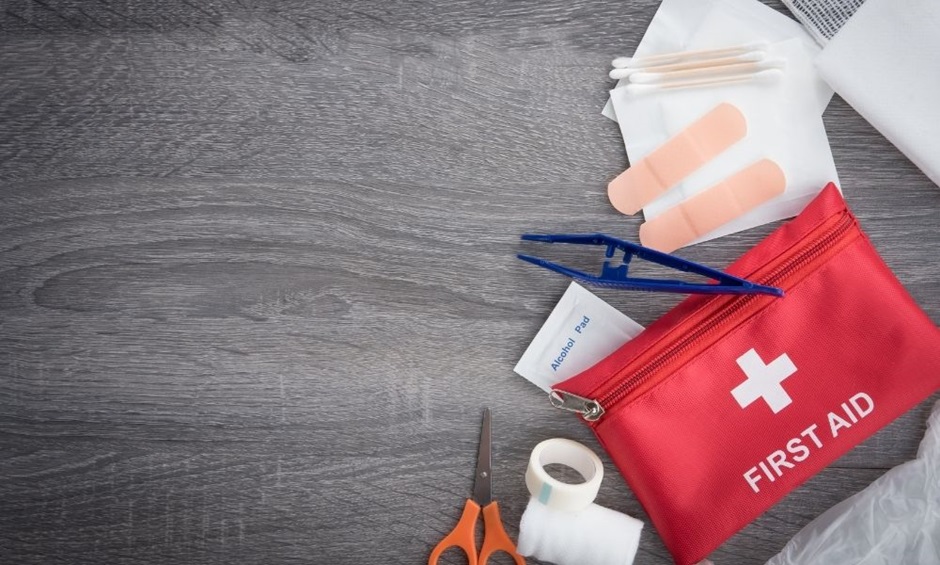In a world where accidents and emergencies can occur at any moment, having basic first aid knowledge is not just beneficial—it’s essential. Whether you’re at home, at work, or out in public, being equipped with the skills to handle minor injuries or critical situations can make a significant difference. This article explores five compelling reasons why everyone should possess basic first-aid knowledge. From saving lives to promoting a safer environment, understanding first aid empowers individuals to act confidently and responsibly in times of need.
1. Saving Lives
The most critical reason for having basic first aid knowledge is its potential to save lives. In emergencies, every second counts, and immediate action can mean the difference between life and death. Cardiopulmonary resuscitation (CPR), for example, can sustain life until professional medical help arrives.
By knowing how to perform CPR, control bleeding, or manage choking incidents, you can provide essential care that stabilizes the situation. This immediate response can significantly improve the outcome for the injured person, ensuring that they receive the necessary attention before emergency services arrive. The best way to learn effective CPR is under the guidance of experienced pros. This is why we recommend contacting Zokal Safety Australia for effective learning lessons.
2. Reducing the Severity of Injuries
Basic first aid knowledge enables you to take swift action to minimize the severity of injuries. When someone suffers a burn, cut, or fracture, knowing the correct first aid procedures can prevent complications and promote faster healing. For instance, correctly cleaning and dressing a wound reduces the risk of infection, while properly immobilizing a fracture can prevent further injury. For a more thorough look into the statistics of injuries in Australia, head over to the Australian Institute of Health and Welfare.
3. Increasing Safety Awareness
Possessing first aid knowledge inherently increases your awareness of safety hazards and risks in various environments. This heightened awareness can lead to a more proactive approach to preventing accidents and injuries. When you understand the potential consequences of unsafe behaviors and conditions, you’re more likely to take steps to mitigate these risks. This is all the more highlighted by the lack of current capable first aid personnel by the National Institute of Health.
For example, knowing the dangers of leaving flammable materials near open flames can prompt you to keep your home or workplace safer. Similarly, being aware of the risk factors for falls can lead you to implement preventive measures, such as securing loose rugs or installing handrails.
4. Promoting Confidence and Preparedness
First aid training instills confidence and preparedness in individuals, enabling them to handle emergencies calmly and effectively. When you know what to do in a crisis, you’re less likely to panic and more likely to take decisive action. This composure is crucial in managing stressful situations, ensuring that you can provide the best possible care.
Preparedness also extends to having the necessary tools and supplies on hand. First aid training often includes guidance on assembling a well-stocked first aid kit, tailored to specific needs and environments. Whether at home, in your car, or at the workplace, having a first aid kit readily available enhances your ability to respond quickly to injuries.
This combination of confidence and preparedness not only benefits you but also reassures those around you. In an emergency, others will look to you for guidance and support, making your knowledge and composure invaluable assets.
5. Enhancing Community Resilience
Widespread first aid knowledge contributes to the resilience of communities as a whole. When more individuals are trained in first aid, the collective ability to respond to emergencies is significantly enhanced. This communal preparedness ensures that help is available in various settings, from schools and workplaces to public events and everyday interactions.
In communities where first aid training is prioritized, there’s a greater likelihood of positive outcomes during emergencies. This collective competence can reduce the burden on emergency services, allowing them to focus on more critical cases. Moreover, the presence of trained individuals fosters a sense of solidarity and mutual support, strengthening the community’s overall resilience.
Conclusion
Basic first aid knowledge is an invaluable skill set that everyone should possess. From saving lives and reducing the severity of injuries to increasing safety awareness, promoting confidence, and enhancing community resilience, the benefits of first aid training are far-reaching. In a world where accidents and unforeseen events are inevitable, being equipped with first aid knowledge is not just a personal advantage—it’s a collective necessity.

